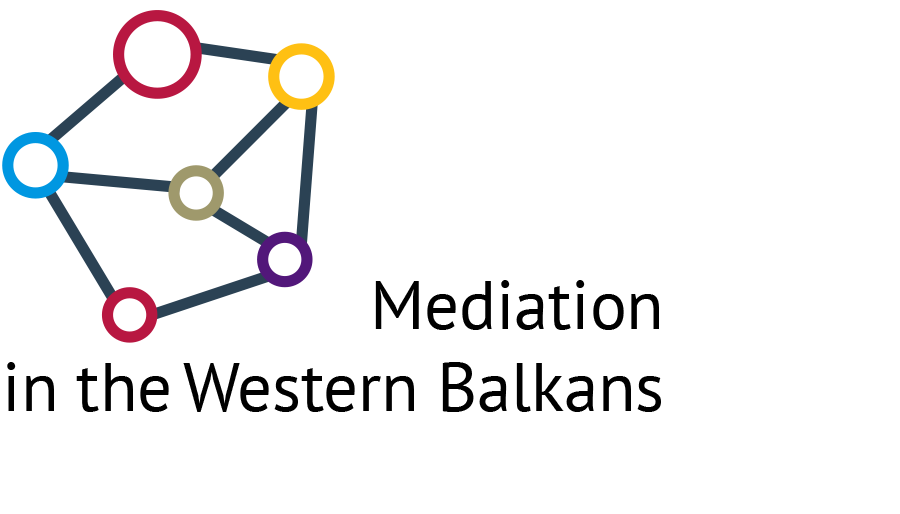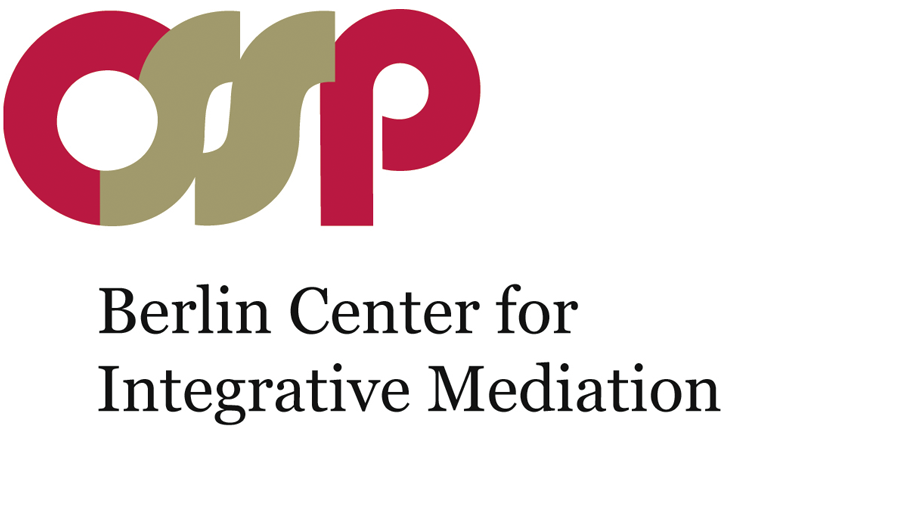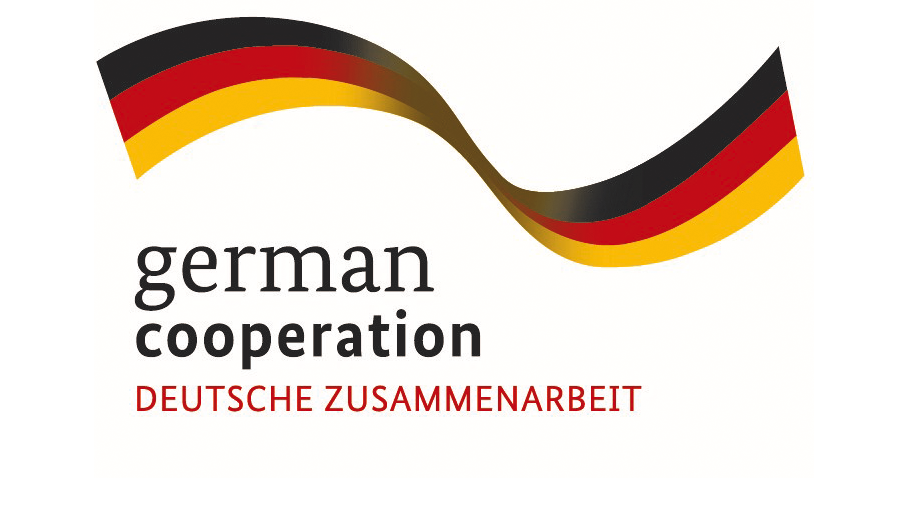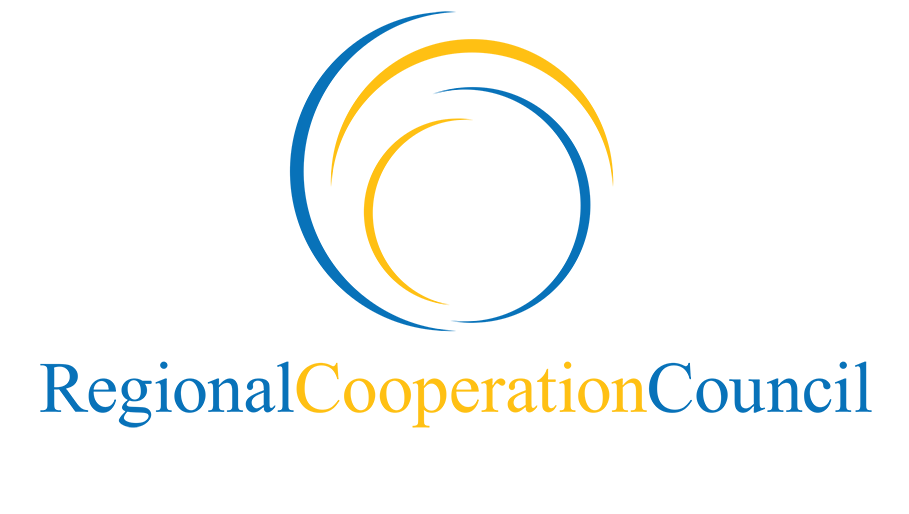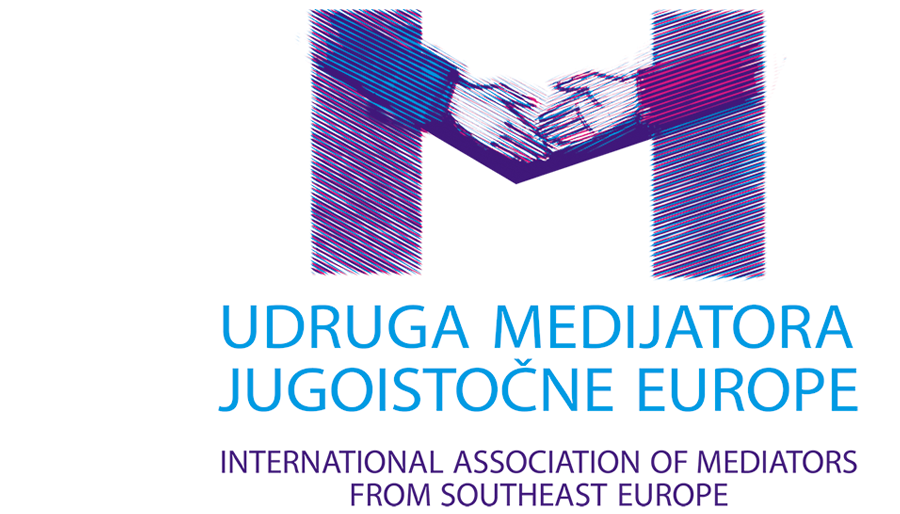Regional Conference ‘Promoting Cross Border Mediation in SEE’
27 October 2021
Online
Conclusions and recommendations
Panel I: Cross-border commercial mediation in SEE
Moderator: Mr. Blažo Nedić, Attorney-at-Law and Mediator, Serbia.
-
-
- Mr. Leonardo D’Urso, CEO of ADR Center, Italy
- Ms. Elena Koltsaki, lawyer/mediator, Greece
- Ms. Marina Lutovac, Director of Montenegro Mediation Center
- Mr. Petar Petrić, Commercial Lawyer and Mediator, Croatia
-
Experts introduced the state of play in their respective economies regarding the recognition of mediation, the existence or not of a regulatory framework, as well as issues related with training, quality criteria and implementation. The diversity of experiences and perspectives leads to the conclusion that the status, use and recognition of commercial mediation varies significantly from economy to economy. Overall, it could be observed that EU member states have greater leverage in the use of mediation as a tool to solve disputes compared with the Western Balkans, where mediation remains underused and unexplored. Among EU members, too, the level of engagement with mediation varies significantly.
Among the inputs shared, the Italian experience, as voiced by Mr. D’Urso, came out as the most developed paradigm in Southeast Europe regarding the constructive use of mediation supported by a regulatory system. Italy is among the economies which have been deemed eligible to receive a robust financial support by the EU within its recovery scheme for economies hit by the pandemic. This financial aid, however, comes with the precondition of Italy launching brave reforms, especially in the field of civil justice and investing, also, on the engagement of adequate workforce to support these plans. Within this context, strengthening the current law on mediation is a sine qua non. In this sense, Italy is at the stage of taking stock of lessons learnt both internally, but also within the international experience inside and outside Europe and introducing a new set of reforms aimed at further consolidating and institutionalizing mediation.
Italy has become an example for other economies in SEE, among which Greece. Ms. Koltsaki referred to how Greece used the Italian model as a prototype, adopted into the Hellenic reality, taking into account the peculiarities and procedures of the Greek legal system but also the dominant culture and mentality. Ms. Elena Koltsaki shared the latest developments in Greece in the field of mediation, after briefly mentioning some key facts and events that have shaped mediation ever since the adoption of the first ever relative Greek law in 2010 until the European directive of 2018, before which there were no concrete provisions or protocol that EU members could follow. Despite reactions from legal associations and other challenges, among which the outbreak of the pandemic, the repercussions of which cannot be fully assessed yet, practical implementations were put in place and great novelties happened. Among these novelties is the establishment of a system that enables the appointing of mediators via a platform operated by the Hellenic Ministry of Justice. While recognizing existing imperfections in the legal system, Ms. Koltsaki said that Greece could claim that it has a mediation system in place and a key accomplishment is the fact that it has become possible to speak about mediation to the real stakeholders, the parties.
In WB economies, however, progress in the field is relatively slow. An interesting phenomenon related with the low status of mediation in the western Balkan region is related with onomatopoeia and the absence or avoidance of the relative term in the legal vocabulary. The WB perspective indicates that many economies refrain from referring to the term ‘mediation’ and opt, instead, for alternative or descriptive terms. Mr. Nedic, for instance, explained how the Serbian law resorts to the descriptive term of ‘out of court dispute resolution’. Similar tendencies have been reported in other WB economies, too. Mr. Nedic shared the news of the adoption of a new law on consumer protection that has just entered force, while commented that the first elements of ‘mandatory mediation’ are expected to be implemented in May, a move which he characteristically described as ‘a glimpse of light in a dark environment of mediation in Serbia’.
Ms. Lutovac and Mr. Petric also shared their own interesting perspectives. Mr. Petric provided an outline of the current situation in Croatia, sharing latest developments, but also ways to move forward. Ms. Lutovac focused on the challenges that come with new laws in Montenegro, among which different interpretations, obsolete mentalities, but also practical difficulties. Amid a new environment for mediation currently being molded, key players involved in the field lobby and advocate to parties over the importance of this tool, which had traditionally been used mainly in family disputes, criminal cases or cases of citizens’ complaints against local authorities. Ms. Lutovac made also a point about access to meaningful information regarding the progress done and encouraged a more productive, active and empathetic study of statistics, not simply as figures on a table, but as a measurement of what is actually being happening in the field. To this regard, the panelist placed emphasis on the New Strategic Document featuring a comprehensive analysis, allowing practitioners to have a clearer picture of developments, pending gaps and needs.
During the open discussion, interesting views and suggestions were shared. In particular, with regards to cross-border disputes, Ms. Koltsaki suggested even a shift in approach in mediation, that would promote incentives instead of sanctions. It is worth mentioning that this suggestion gave ‘food for thought’ to the next panels, where speakers elaborated on this perspective, raising the question of how such a proposal could potentially be implemented without causing controversy by stepping into other economies’ jurisdiction. Careful moves, small steps, but also sound awareness of the ‘other’ cultures were discussed as possible remedies.
Almost all speakers referred to the absence of adequate training in the field as a parameter holding mediation back. In their majority, they also emphasized that cross-border commercial mediation (and not only) remains underused, despite the apparent privileges. Panelists agreed to the need of promoting relative education to businesses and other parties, in general, so that a culture encouraging mediation can be gradually instilled. Capacity building for practitioners and organizations in the field was also discussed as necessary.
Another important topic of the panel was the presentation by Mr. D’Urso and Mr. Nedic of the study prepared by RCC ‘Promoting Cross-Border Mediation in Resolving Civil and Commercial Disputes in the Western Balkans’[1]. The main aim of this Study is to provide a comprehensive analysis of the current situation in cross-border mediation in civil and commercial matters in the Western Balkans and its potential for facilitating resolution of trade disputes between the parties in the region, also in the context of the Common Regional Market 2021-2024 Action Plan.
Panelists concluded that:
- Mediation should be recognized by its name; a unified term should be used all over the region, so that there is a common understanding of this practice and the law does not limit its potential outcomes.
- Quality standards in mediation should be set up and unified among the region.
- Regardless of their educational or vocational background, aspiring mediators should receive proper training, based on the aforementioned quality standards.
- A mediator’s code of conduct should be established, illustrating values and principles that should underpin the practice of mediation.
- The use of technology should be employed to the fullest; in this regards, alternative or new forms, such as online mediation, should be explored and encouraged.
- Cultural awareness, understanding of the ‘other’ reality is a prerequisite, especially in cross-border disputes.
[1] https://www.rcc.int/pubs/126/promoting-cross-border-mediation-in-resolving-civil-and-commercial-disputes-in-the-western-balkans
Panel II: Restorative Justice in SEE
Moderator: Ms. Merita Bala, Programme Manager, Foundation for Conflict Resolution, Albania.
-
-
- Ms. Branka Peurača, Senior Expert, Association for Creative Social Work, Croatia
- Mr. Rasim Gjoka, Director, Mediator, Foundation for Conflict Resolution, Albania
- Ms. Sanja Ćopić, Senior Researcher – Institute of Criminology and Sociology, Serbia
- Ms. Ena Kazić-Çakar, Assistant Professor, International University of Sarajevo, Bosnia and Herzegovina
-
The RJ panel experts provided on overview of the situation with regard to the state of development of restorative justice in their own countries, respectively in Albania, Bosnia and Herzegovina, Croatia and Serbia. While there are positive developments in some countries, still challenges are faced both in the country context and in the regional one. In some countries there are also drawbacks, which make relevant interventions more demanding.
The main recommendations for follow up actions with that would have an impact on further development of RJ at country level and regional one include:
- Conducing a thorough baseline /mapping about the state of development of restorative justice in the SEE region, and at the country level, including an analysis of the developments, needs, possibilities, challenges, identifying areas for intervention, which would inform the development of RJ Policy Framework and relevant plan. The baseline should also include an analysis of the current initiatives, interventions, projects, etc. and recommendations for improvements. Among others, it should also identify the area (s) where restorative practice is most likely to flourish (not necessarily justice – but also communities, schools, social services which might provide better environment for innovative approaches).
- Apart from the baseline findings that would inform the RJ policy framework, the RJ panel already recommend that the document should include recommendations for improving the relevant legislation in order to increase access to restorative practices and mediation, not only for a limited category of groups and criminal offences, but far beyond;
- Although in some countries there is legislation in place about RJ, more efforts should be made, especially by justice institutions, to respect the implementation of such legislation on diversion to the restorative programs for minors and youth in contact and conflict with the law.
- Developing, implementing, and evaluating pilot programs on the basis of findings and recommendations of baseline study, as part of the RJ Policy Framework action plan.
- Planning and implementing capacity-building and policymaking activities (in a collaborative way, involving all the relevant stakeholders.
- Monitoring and evaluating RJ regularly and using the findings to improve policy framework and implementation mechanisms & structures.
- Exploring international actors with the knowledge on RJ and on facilitating development of the innovative approaches in international settings, willing to work with numerous local stakeholders and especially policymakers to ensure widespread understanding and support of the concept. The European Forum for Restorative Justice resources should be approached to expand cooperation at European level.
- Advocating for RJ in programming and budgeting both at national and at EU level in order to ensure sufficient funds for sustainable RJ system.
- Apart from international funding, it should be advocated for government funds to support the financing of restorative justice and mediation programmes, especially for minors and young people involved in conflict situations.
- Advocating for changes in EU funding rules related to dissemination of results of the EU funded projects implemented in international partnership. Currently, in most funding programs the eligible activities are to be organized in the countries of the project partners. Therefore, they cannot use any portion of the budget to travel to the neighbouring country (or to the other countries in the region) to disseminate results. Programming on EU level should encourage and stimulate activities aiming at sharing resources on regional level e.g. when assessing applications for EU funding, adding additional points to the projects planning to share knowledge, skills, processes or providing technical assistance to the other countries in the region. The impact of the project and its outreach would increase significantly.
- Advocating for mediation as a separate diversion order in juvenile justice system instead of the settlement with the injured party, as well as not to determine in advance (by the Law) possible outcomes of this process as is the case now. In making this change the legislator would also make a shift from understanding mediation as a form of settlement towards considering it as a form of dialogue about the conflict and its impact on the parties. By making this change the focus would be moved from the outcomes to the process, i.e., from making things right to healing of both parties.
- Advocating for meditation as a separate obligation under provision on the conditional postponement of criminal prosecution (principal of opportunity) in cases of adult offenders foreseen in the Criminal Code. This would make the use of diversion of adult offenders more in line with restorative justice principles and would provide for more active role of a victim. To bring by-laws related to application of diversion orders for juvenile offenders, including settlement between a juvenile offender and a victim.
- Building the capacities /increasing the awareness of judges and prosecutors, and other stakeholders about the concept of RJ and its benefits, to increase the referral of cases to mediation service and other restorative practices.
- Raising public awareness about relevance and benefits of VOM and restorative justice, as well as to raise awareness of professionals on the concept of restorative justice programs, which is relevant for ensuring broader use of provisions with elements of RJ in practice. This should also include the enhancement of the quantity and quality of education about RJ of justice professionals.
- Expanding the models of RJ used, particularly for juveniles, including family group conferences, which would provide space for more active role of a family and the community (community of care) in solving problems in the aftermath of a crime, which is relevant in cases of juveniles.
- Regional exchanging to provide space for experience and know-how exchange in the region (experiential learning) – develop and implement joint projects, exchange of relevant materials, bilateral and multilateral cooperation through meetings, round tables, workshops, conferences and other types of academic encounters that will point out the potential and challenges of RJ in the region, boost networking, and developing an online platform for sharing and distributing materials, etc. The experience exchange should also include inter-university collaboration in the region. Another concrete recommendation about strengthening regional cooperation includes the establishment and consolidation of the RJ network as component of the Institution/Forum in SEE and explore possibilities of applying cross border mediation in the penal matters.
Panel III: Environmental Mediation
Moderator: Mr. Bill Marsh, Independent International Mediator, UK.
-
-
- Ms. Smiljka Gavrić, Mediator at Association of Mediators in Bosnia and Herzegovina,
- Ms. Gordana Ristin, Judge, Mediator, Ljubljana, Slovenia
- Ms. Drita Avdyli, Chairperson of the Albanian Chamber of Mediation
-
We all share the air that we breathe’, was the sentence that opened the specific panel, whose moderator made it clear that cross-border environmental mediation is indispensable to the survival of humanity, therefore, goes beyond geopolitical bilateral disputes. The following observations are based on an outline provided by Mr. Marsh, who summarized key notions and ideas that derived from the discussion as a whole and which represent, also, lessons learnt via the experience, research and practice of experts present.
Key ideas from the third panel:
- There has been a shift from private to public context. A space has been found for mediation process and this should be further supported and enhanced. Issues of officials’ accountability and public responsibility are also arising. The management of unexpected events, like elections, cabinet reshuffles etc. also become an issue of priority. In this context, public bodies need to take decisions and support mediation via adequate policies, institutions and regulatory frameworks.
- Terminology. Terminology affects the way people view what mediators do. Terminology is critical. If one asks the right questions, they will get a different approach. As already mentioned, the practice of mediation is labelled under different terms all around the region. The moderator argues that ‘mediation’ is an unfamiliar word, therefore not trusted by people. It also puts the focus on the mediator, rather than the parties, who are the true stakeholders. The real question for parties should not be whether they want to mediate or not, but whether they wish to improve the quality of the dialogue that they either have been having so far or aspire to initiate. ‘Dialogue’ has been proposed as a word that one can relate to more easily; ‘dialogue’ sets the focus on the parties, while also putting communication and understanding at the core of the process.
- Sustainability. How can one define success of mediation for the parties? Success should mean that parties have reached a certain level of quality of dialogue, where good dialogue can be continued without the presence of a mediator. In mediation practice, there should be an aim for redundancy- efficient capacity building for parties.
- Vision. Mediators tend to envision themselves and their practice in a functional rather than a visionary way. There should be, instead, a needs-oriented, party-focused approach. This suggestion coincides with the previously mentioned ideas of promoting extensive needs-analysis and cultural awareness of involved parties before attempting mediation.
- Need and Flexibility. There is an overwhelming need for improving the quality of public dialogue. Mediators should be able to grasp the underlying complexity of issues, and explore, under this perspective, the role of high-quality public dialogue in resolving crucial issues of public interest. When it comes to resolving a dispute, there might be more options than purely ‘yes-no’, ‘black or white’ answers.
